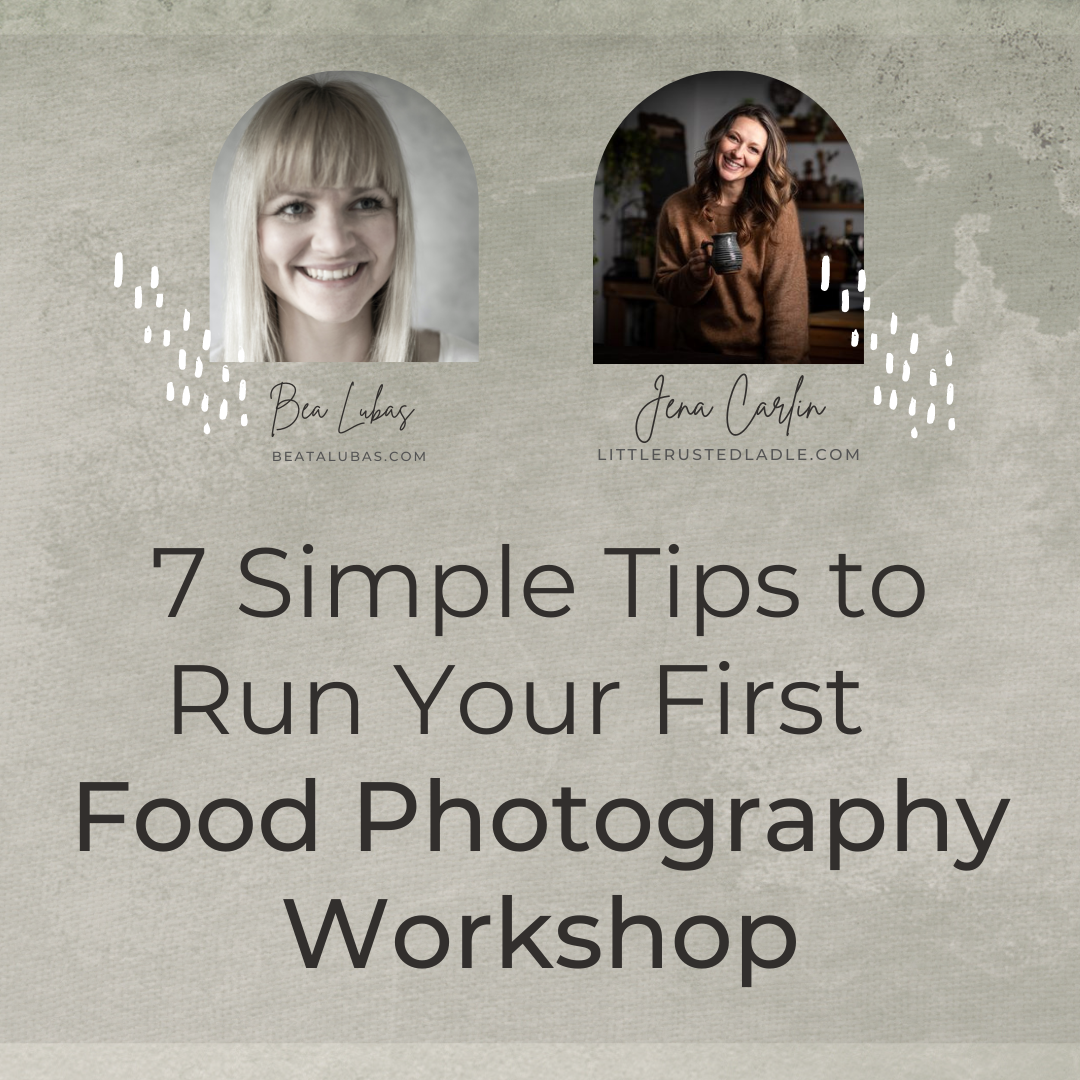
Last year, I had the privilege of interviewing 28 of the top educators and creators in the food photography industry for the Master The Art of Food Photography Summit. Among them include some of the best tips from Bea Lubas of Bea’s Cookbook about running and conducting photography workshops.
Skills You Will Need To Run A Photography Workshop

If you are thinking about doing good food photography, think about what skill sets you need. Similar to when you get a new job, think about what skills and habits you will need to set yourself up for success. A good exercise to do if you want to run workshops is to start by acquiring the relevant skills you will need.
One of the most important skills to conduct workshops smoothly is being well organized. Things like learning how to organize your time and important tasks, and if you struggle to do so, hiring a project manager or using management software will be extremely helpful.
Next, having great public speaking skills is important. Public speaking is like a muscle you can train up so this is definitely something you can learn. You can start by reading books about speaking at gigs such as photography shows that are similar to running workshops. It is also good to read books right before you host a workshop if it helps you to relax, should you have performance anxiety. Simple things like doing different enunciation exercises by saying different letters will help you relax your muscles before you do physical work outs.
On top of that, having good communication skills is essential. This includes communication with your team and your students. Most importantly, excellent customer service skills with your students are vital as they are your clients when it comes to your workshops. If you're running a photography business, your students are part and parcel to your success. Most photographers probably don't think about providing excellent customer service, but it is actually one of the most important skills photographers at all levels need to work on. Running workshops regularly will require you to master the art of how to talk to people. It's really helpful sometimes to even like understanding your own ways of communicating with other people.
Lastly, if you would like to conduct photography workshops, having some teaching skills that include motivating your students, being patient, and putting yourself in your students shoes are really helpful.
The surprising benefits of hosting a food photography workshop
After someone reached out to Bea to run a workshop, she was very inspired by the feedback she received as well as feeling good about connecting with people. If you love sharing your knowledge and helping others through the journey of becoming a food photographer, running photography workshops is a great outlet to do so. You might even gain huge satisfaction and inspiration just by knowing how you are helping your students avoid mistakes you made that you wish someone told you about.
On top of that, running workshops will bring you a lot of exposure that will lead to great opportunities. Bea has personally had people reach out to her and became her clients as they found her through the workshops she ran. Somebody might mention you on social media like Facebook, Instagram, or Pinterest. There is also a possibility of someone writing a blog post about the workshop you ran in which you will benefit by gaining visibility online.
Conducting photography workshops also surprisingly helped Bea organize her thoughts better. She found teaching helpful for her own photography process as it helped her organize her thoughts. Moreover, she also gained public speaking skills, and became more organized and confident as a photographer.
However, in order to reap all the benefits of running workshops, you need to do them regularly. It’s just like going to the gym regularly to work your muscles to stay fit. After taking a break and going back to your fitness routine, you will feel the need to retrain your muscles.
How To Get Started In Creating Your First Workshop
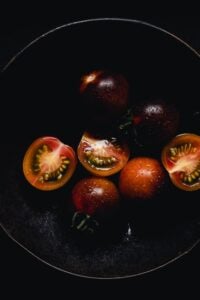
Bea mentioned that when she first started thinking about transitioning to food photography, she did not wait until she gave up her full time job, nor did she wait until she was ready. Instead, her advice to those of you who would like to run your first food photography workshop to just put yourself and your work out there.
Things like starting a library of your ideas and notes using Evernote. You can create a folder on your computer or a notebook on Evernote which is dedicated just for workshop ideas. Another way to get your ideas rolling is by saving some pins on Pinterest, or when you do online courses, and see something that could be used for workshops. Write those things down and start building your own library of ideas such as themes and topics, ways of teaching, or books to read.
Tip 1: Start teaching right now to showcase your teaching style
Another great way to start is by showcasing how you teach to your potential students before you start marketing your workshop. You can show people how you teach right now. For example, if you want to run a workshop within six months, start sharing tips right now on your social media channels. Some ideas include showing some behind-the-scenes of your photography process on Instagram or sharing your photography by writing a blog post.
Doing so will attract people who can relate to you, as they will be able to see you and how you teach which makes them more willing to attend your future workshops! In short, if you show people how you teach, share valuable tips and tricks on your social media channels, show your face, and speak to people, you are allowing people to get to know you.
Another way to get the ball rolling is by assisting someone with their workshop to learn all about what is involved with running one yourself. You will definitely learn a lot from the experience, as a co-host or as a student attending a workshop. It does not even have to be a food photography workshop! By attending somebody else's workshop you can see how a workshop is organized.
Lastly, networking is also a great first step before you run your first food photography workshop. Talk to photographers, connect with other food photographers, stylists, chefs. You can also search for a good studio to host your workshop and save their contacts or just start collecting contacts by adding them to a Pinterest board. You can also create a secret board on Instagram, where you save studio spaces for future reference. When you are ready to do a workshop, you can easily refer back to those contacts and studio spaces you have already saved.
Last but not least, reach out to these contacts by sending a simple message or even a short email to tell them how much you admire their work. Reaching out with a kind message saying that you would like to run a workshop with them is a great way to break the ice so that they know who you are. Providing them with some ideas ahead of time is also a great way for you to gauge their interest and possibly discuss details and planning for your workshop.
Tip 2: Save time by automating repeated tasks
Having things organized will not only save you a lot of precious time, but also helps you weed out mundane tasks you can easily automate. A good way to automate something like your workshop’s budget is by writing it down in a Google Doc or Google Sheet, as well as your entire SOP (Standard Operating Procedure).If you are running a workshop next week, all you have to do is go to your Google Docs and look at the process. You can have a list of equipment, things you need to take or need to have at the workshop, and emails to send out to the students, as well as what you are going to write in your offer when you’re ready to sell your tickets.
In short, having those essential items and to-do lists for running your workshop written down will save you so much time. This is also true for studios, in which having a list of studios or prop places is always helpful because you don't have to look for them again and again.
On top of that, you can also have pre-written email templates at your disposal and tweak them when necessary when you have to reach out to people to run workshops.
Be sure to personalize the emails so that you don’t sound like a robot by sending the same kind of email to everybody.
Tip 3: Prepare notes about your offer as well as how you are going to promote it
As there are a lot of things that go into your offer, be sure to write notes. Everything from how you will sell your offer and how you plan to market it is something that you need to think about before you even conduct your workshop. Here are some great prompts to help you plan things out:
- How am I going to market it before the offer is out there?
- How am I going to sell my offer? Am I going to sell it through my website or a ticket site?
- What are the total costs involved?
- How can I make it easy to portray for my students (as you want the process for them to be as easy as possible).
The first thing to do when it comes to figuring out your offer is seeing what other people are doing. Then figure out how you can do it differently, or create a better version! Try to be as detailed as possible and be as strategic as possible about your topic by narrowing it down. Don’t hesitate to really go into details as this is what your students are going to get the most value from.
If people are going to attend your workshop about a specific topic, make sure you tell them all the details about what they are going to receive, especially about what exactly they are going to learn about. Set the right expectations from the get go so that they know what is going to happen during your workshop.
If anything, try to show people why they should choose you instead of all the other food photographers or teachers out there. Let them know why your workshop is unique and different from other workshops. Bea advises beginners to really think and brainstorm those ideas and definitely use clear and inspiring language to make it memorable and fun. If somebody reads it and they are able to memorize some of the fun things that you've mentioned, it's more likely that they will remember those things they would really like to learn.
Lastly, before you do the offer, book the studio and tell your audience where exactly your workshop will be held. Another important step is to have clear terms of cancellation and refund policy easily accessible. Just to be cautious, you can even repeat your policies a few times to your workshop students just to make sure that everybody's on the same page. It is very important to back yourself up, as well as letting people know exactly what they are signing up for. It is also advisable to get liability insurance that would be in the offer as well. Doing so ensures that there are no misunderstandings.
Tip 4: Craft a memorable student experience with your workshop
Before you market your workshop, spend some time seriously thinking about what your students’ experience will be like before, during, and after the workshop. From there, you can start to think about the steps that go into each of those stages and plan your workshop accordingly.
The first thing you will need will be the offer, which will help your audience decide whether they should attend your workshop or not. Put some real time and effort into this offer so you make a good impression. In short, your offer has to be inspiring. You have to show people how you teach by being memorable in order to make a potential student feel like, “Oh, actually, there is something of value here.” Ultimately, it is not so much your experience as a teacher, but rather about your students’ experience.
Once you have that all figured out, you have to worry about what happens if they buy your workshop. Basic things like sending a thank you email and, depending on your cancellation and refund policies for studio workshops, you could have a rule where the accommodation is not all transferred but included in the workshop’s entry ticket price. This is something that is said clearly in the offer in the ticket, but it is your responsibility that when they are purchasing the ticket for the workshop, they will need to take care of transportation and accommodation.
A good example of being crystal clear with accommodation is by mentioning in your thank you note to students who purchased your workshop tickets to hold off on booking accommodation or transport before you reach the minimum amount of students.
Additionally, you can also start a Facebook group for your workshop attendees to have everybody connected, as well as make it easy for them to share your workshop details on their Instagram feeds or their websites. It's also very good for people who are traveling from different places to connect with each other and stay at the same hotels or an Airbnb together. Your Facebook group helps your students connect with each other, so that if they want to share a taxi from the airport or anything like that, it is easy for them to talk to each other. On top of that, you are also keeping people engaged and excited about the whole experience before the workshop even starts. Although Facebook groups are really effective, keep in mind that not everybody has Facebook, so make sure that everything is written down on your workshop tickets or emails.
It is also very important to let your students know that if they have any questions or if they want to ask anything that you are there for them. Giving your students a clear run down of your workshop’s schedule, such as what is going to happen hour by hour including lunchtime. If you’re providing lunch, be sure to ask people about their diet preferences, or allergies. This would be probably one of the first emails you send to your workshop students. As people sometimes miss those emails or forget to answer you, you have to make sure that those are some of the first details you gather.
Bea says that she personally likes to send her students questions, such as things they expect from the workshop, what are some things they feel can be improved etc. Doing so not only helps you tailor the workshop to everybody’s needs, it also helps you to narrow down your topic as you already know what people want to learn. A couple of days before the workshop, you could also send out another email just to say that you are excited to meet that, and to leave your contact number just in case anyone needs to contact you.
Tip 5: Have a backup plan for when things do not go as smoothly
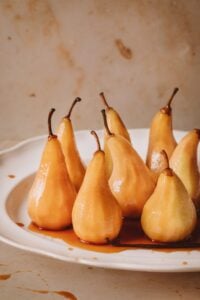
When you are hosting your photography workshop, focus your energy toward how you want your students to feel before, during, and after your workshop. Make sure that you pay attention to every single detail because it really is one of the key elements that will leave a lasting impression for your students. If you pay attention to the smallest details, even if it's having fresh flowers on the table, having everything ready before people arrive, as well as having some snacks and drinks, they all make a huge difference to your workshop’s success.
Lastly, it is also very important for you to be rested, relaxed, and bring that energy to the room on the day of your workshop. People are coming to learn food photography from you, and not someone else, so make sure you go above and beyond to give them the best experience. If you've never run workshops before, definitely try to practice what you're going to say beforehand so that you’re prepared when everybody arrives in the room.
As sometimes there is a lot happening behind-the-scenes, you might forget what you have to say. However, if you've already practiced it in your head a few days before your workshop, it is much easier to start the workshop and start with what is the most important. Even if it's an inspirational anecdote from your own photography experience, or a funny story, find a way to comfortably break the ice.
It is also really helpful to ask the group to introduce themselves and ask them about the reason why they came to your workshop and what they would like to get out of it. This is because if you are all going to be spending a day or two days together, it's nice for your group to bond with each other early on. It might feel uncomfortable at first, but doing so really relaxes the group and makes them feel at least a little bit more connected to others.
Tip 6: Follow Up After The Workshop Is Finished
A great way to offer a follow up after the food photography workshop is to include that within your workshop’s offer so that your students already expect it. During the workshop, your students learn a lot of your tips, but then they go home and practice them but run into some problems. As they couldn't have asked those questions at the workshops because they haven't tried those things yet, a follow up is a great way for them to ask you for guidance.
Doing so not only gives your workshop students the support they want, it also creates a full experience for them. Apart from that, doing a quick survey where you are asking your workshop attendees for their feedback is also very useful. Those important insights will help you improve your future workshops. Start by thanking your students for being at the workshop and make sure that if there were any questions at the workshop they didn’t ask, you will be happy to help.
If you promised for certain things to be uploaded to your Facebook group, make sure everything that has been said at the workshop to be there after your workshop is all wrapped up. In your thank you email, you can also ask for feedback as well as how people felt about the workshop.
Lastly, you can also plan surprises or gifts that you would give to your students during or after your workshop. Having a nice bonus, a giveaway or a surprise gift will help you enhance your student’s experience, as well as give them an even more memorable experience. You are showing them that you do pay attention to them, as well as providing them with excellent customer service. Even if you have no clue how to do these things yet, pay attention to where you shop and how they make you feel. From there, you can start to think about how you can replicate this experience for your students at your next workshop.
Tip 7: Get Uncomfortable And Get Out Of Your Comfort Zone

Here are a few things Bea recommended beginners should do if they are serious about running a workshop:
- Do an Instagram story where you talk to your followers. It can be either explaining the way you took a picture or explaining your setup, or even something as simple as telling them about your day, or your inspiration. Alternatively, you can record yourself on your camera and speak about photography. After that, watch your recording and think about ways you can improve the way you present or teach a subject. Reach out to people and make connections.
BONUS: How To Host a Retreat with Eva Kosmas
Want to learn how to host a retreat instead of a workshop? Check out these quick tips from Eva Kosmas!
- Properly Price the Retreat: There is a lot of overhead! Make sure to complete a budget and properly plan in pricing. Make sure it’s profitable for you.
- Choose the Right Venue: Make sure it is comfortable, beautiful, spacious, can accommodate sleeping and meals for your guests, and is equipped with everything you will need for your workshops!
- Consider Your Teaching Method: Will you use slide presentations, hands-on demonstrations, student-led hands-on practice, or Instructor-led group discussions.
- Keep it Small: A max of ten people is effective for a retreat.
- Choose the Right Food: Make the food you’re shooting yourself so you can plate it for photography. Baked goods are a good choice because they are easy to make ahead of time. For group meals, cater!
- Communication is Key: Make sure attendees have a clear schedule, know how to get to and around the area, and recommend travel insurance!
- Keep it Relaxed: Don’t overwork your guests! Make sure they have time to rest, adjust, and take care of private matters. And take a break from learning with an event or excursion!
If you are ready to level-up your food photography skills and knowledge and learn from the best in the industry, don’t miss the annual Master the Art of Food Photography Summit!
Click below to learn more – we just completed this year’s summit, but be sure to add your name to the waitlist so you won’t miss a moment of the next summit. And while you're here, check out our other amazing blog posts, like 7 Pro Tips for Stunning Food Photography With Your Camera.
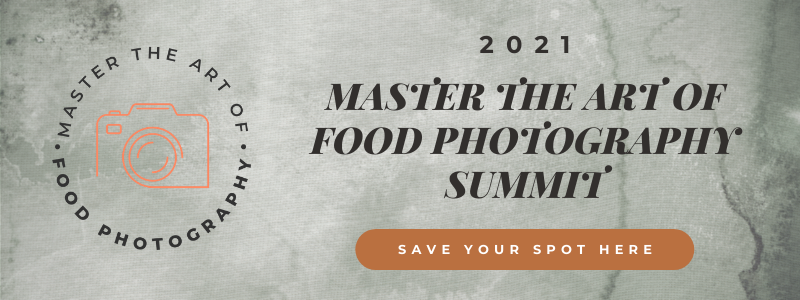

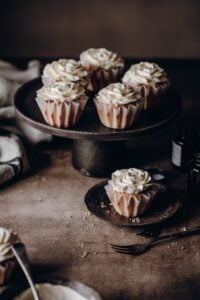
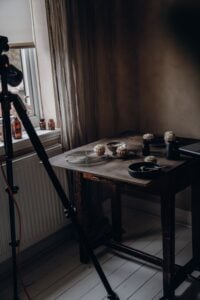



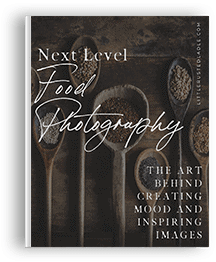
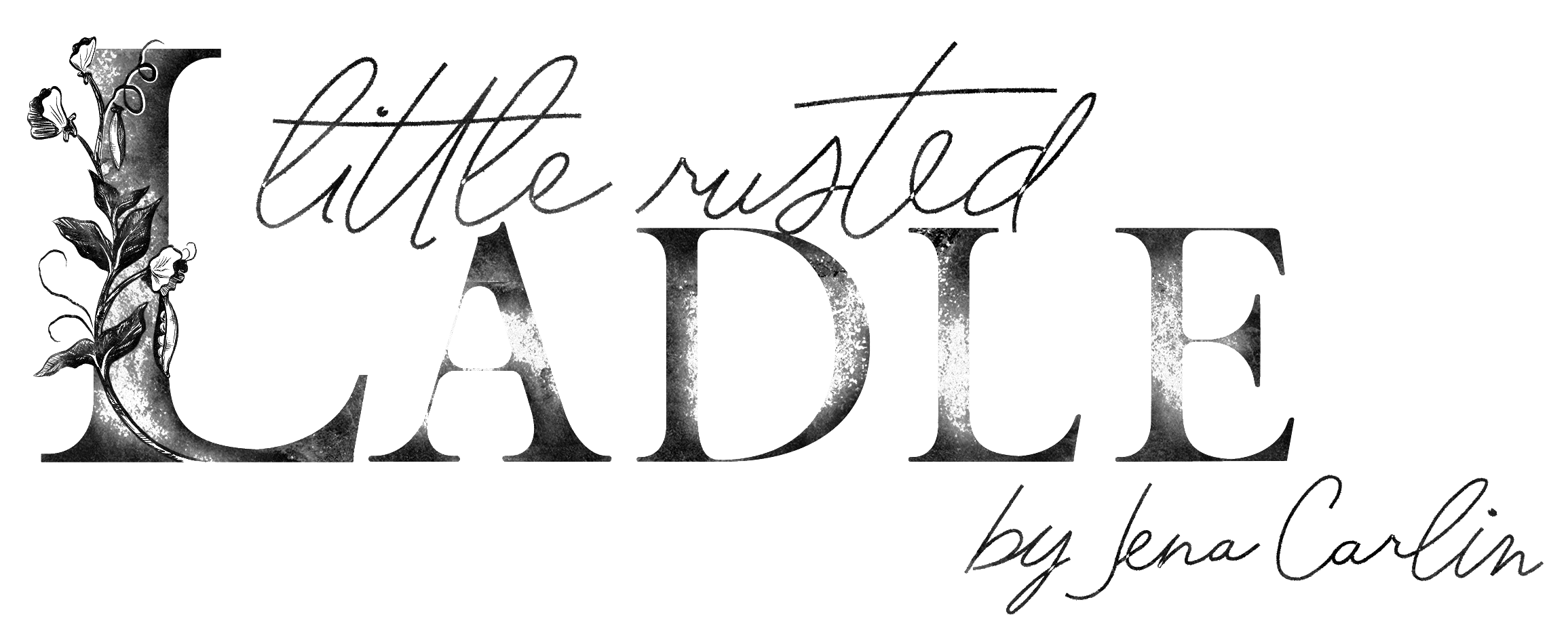
Thank you very much for sharing, I learned a lot from your article. Very cool. Thanks.
Heyy there! I kniw thuis iss kid off offf tolpic but I was wondering
iff you knew where I could locate a capcha plugin foor myy
comment form? I’m usiong thhe same bloog platform aas yours andd I’m having problems finding
one? Thanks a lot!
Nice blog here Also your site loads up fast What host are you using Can I get your affiliate link to your host I wish my web site loaded up as quickly as yours lol